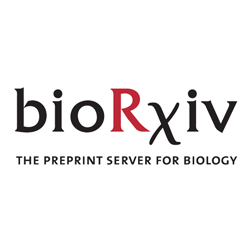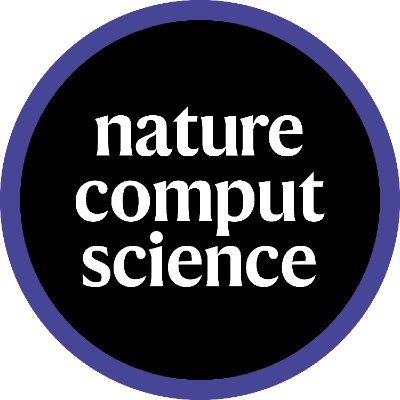
Matt Raybould
@mijr12
Followers
361
Following
273
Media
2
Statuses
192
Postdoc in the Oxford Protein Informatics Group.
Oxford, England
Joined June 2017
📜 New preprint! Syndirella is a pipeline for proposing synthesis-directed elaborations for fragment-inspired designs with explicit routes and poses! Preprint: https://t.co/Nkin6VU6Ni Code:
github.com
Generates and scores synthetically tractable elaborations from fragment screens - oxpig/syndirella
1
1
4
Our preprint, LICHEN: Light-chain Immunoglobulin sequence generation Conditioned on the Heavy chain and Experimental Needs, is now on bioRxiv. LICHEN is a machine learning tool to generate an appropriate light sequence for a given heavy sequence. https://t.co/r67NiflpBr
biorxiv.org
In developing therapeutic antibodies, the heavy chain is often prioritised due to its higher variability and its central role in antigen binding. An appropriate pairing of the light sequence is...
1
3
8
Our paper "Transformers trained on proteins can learn to attend to Euclidean distance" is now published in @TmlrOrg @TmlrPub
https://t.co/fFrdKRzFXP We investigate how models like AlphaFold3 and ESM2 learn to reason about structural data using standard inner-product attention
openreview.net
While conventional Transformers generally operate on sequence data, they can be used in conjunction with structure models, typically SE(3)-invariant or equivariant graph neural networks (GNNs), for...
1
8
32
Our work exploring the ability of and requirements for ML to predict the effects of mutations on antibody–antigen binding affinity (ΔΔG) is out now in @NatComputSci!
Out now! @AlissaHummer, @OPIGlets and colleagues present Graphinity, a method to predict change in antibody-antigen binding affinity (∆∆G). Featuring synthetic datasets of ~1 million FoldX-generated and >20,000 Rosetta Flex ddG-generated ∆∆G values! https://t.co/5yMDGeyRrv
2
6
53
Come and find OPIG at #PEGSummit today (Thursday) C089: LICHEN: Light-Chain Immunoglobulin Sequence Generation Conditioned on the Heavy Chain and Experimental Needs - Henriette Capel C090: Predicting the Developability of Nanobodies to Improve Therapeutic Design - Gemma Gordon
0
1
10
Do you wish working with T-cell receptor structures was easier? Us too! STCRpy, our software suite for TCR structure parsing, interaction profiling and machine learning dataset preparation is now available! Github: https://t.co/VdRKvUfTwS Pre-print: https://t.co/Qh65gi5Lm2 1/3
github.com
Contribute to oxpig/STCRpy development by creating an account on GitHub.
1
2
3
Was an honour for our collaboration with Sarosh Irani's group to be recognised with the PNAS Cozzarelli Prize #immunoinformatics #encephalitis #autoreactivity #bcells
Join us in celebrating our 2024 Cozzarelli Prize Class IV: Biomedical Sciences winning paper, “Ultrahigh frequencies of peripherally matured LGI1- and CASPR2-reactive B cells characterize the cerebrospinal fluid in autoimmune encephalitis.” Read more: https://t.co/rR16Co9a4a
0
1
2
Really happy that our work on conditioning diffusion models is published - have a read if you fancy hearing how we tried to encourage models to generate more physically plausible compounds by training conditionally with synthetic, distorted molecules!
In this week's first featured article Deane et al. introduce an approach for improving generative molecular design. Distorted molecules with quality labels are added to training data, allowing the model to distinguish unfavourable conformations. Read more: https://t.co/yYnbIVzMW7
1
12
46
AntiFold, our antibody inverse folding model, has just been published at Bioinformatics Advances. Work led by @magnushoie & @AlissaHummer. Paper: https://t.co/8rD08WWlnz Try out the webserver: https://t.co/TIqyGrboVE Codebase available on Github:
github.com
Improved antibody structure-based design using inverse folding - oxpig/AntiFold
0
13
58
We have released a web application for Humatch, our new antibody humanisation tool. Humatch enables experimental-like antibody humanisation in seconds and is free to use at https://t.co/hfmVtzPkpN For more info, Humatch is described here:
tandfonline.com
Antibodies are a popular and powerful class of therapeutic due to their ability to exhibit high affinity and specificity to target proteins. However, the majority of antibody therapeutics are not g...
0
8
26
Predicting protein conformational flexibility remains a major challenge in structural biology. While we can now accurately model static protein structures, understanding their dynamics is still difficult, largely due to a lack of suitable training data.
1
5
20
This was a huge amount of work. Thanks to my Proceedings Co-Chair @kmborgwardt and all Area Chairs, reviewers, subreviewers, and of course, the authors. Karsten and I, the #ISMBECCB2025 Steering Committee, and @iscb greatly value all of your contributions, expertise, and effort!
#ISMBECCB2025 Proceedings Track submission notifications have been sent out today! A HUGE thanks to all ~400 reviewers, 23 area chairs and to Co-Chair Tijana Milenkovic @ProfMilenkovic for this fantastic joint effort and team work! Looking forward to the conference! @iscb
1
7
12
We apologise for the recent disruption of our weekly update of SAbDab. The database has now been updated and we will return to the weekly update schedule. We are continuing to check and make sure that SAbDab is as up to date and complete as possible. https://t.co/MJfbSzXBx0
1
1
3
This International Women's Day, we proudly recognise the amazing women in OPIG and all their exceptional work and achievements
0
2
14
Our manuscript "T-cell receptor structures and predictive models reveal comparable alpha and beta chain structural diversity despite differing genetic complexity" is now published in @CommsBio: https://t.co/hWH7esAEGo
nature.com
Communications Biology - T-cell receptor structures and predictions of deep learning models reveal comparable alpha and beta chain structural diversity despite differing genetic complexity.
0
8
29
Happy 2025 from everyone at OPIG! DPhil student Isaac Ellmen has written a News & Views article for Nature Chemical Biology (@nchembio) reflecting on the impact of AlphaFold2 and remaining challenges in the field. Read "The Protein Universe in 3D" here:
nature.com
Nature Chemical Biology - Predicting protein structures from amino acid sequences used to be difficult and error prone. This changed in 2021 when AlphaFold2 reported near-experimental accuracy for...
0
14
51
AIntibody: an experimentally validated in silico antibody discovery design challenge https://t.co/ojiVLcEqAA
2
40
146
OPIG DPhil student @oliverturnbull1 and postdocs @AlissaHummer & @mijr12 contributed computational profiling to a comparative assessment of developability across various therapeutic formats. Collab w/ Arosio lab @ETH & Egebjerg/Lorezen groups @novonordisk
https://t.co/7pfDh1y5be
tandfonline.com
Engineered antibody formats, such as antibody fragments and bispecifics, have the potential to offer improved therapeutic efficacy compared to traditional full-length monoclonal antibodies (mAbs). ...
0
7
14
We have just advertised a new permanent Research Software Engineer role within the group (Grade 8 salary band £47-55K pa). Application deadline: 1st November. Details in the image below, and more info available at the link. Please share widely! https://t.co/4Iy0AtvKAg
0
4
5
OPIGlets are out in force at #AIChem24, organised by our very own @gmm DPhil students @LucyVost, @arun_raja007 and @isakvals are presenting posters, and Yael is giving a talk about her recent work MolSnapper on Wednesday! Please come and chat to them!
1
7
10


















